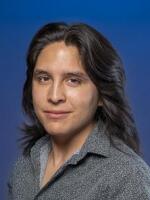UNLV just held a class in the school of hard knocks.
Undergraduate healthcare students spent part of last weekend working through a poverty simulation designed to increase the understanding of the day-to-day struggles of low-income families.
The students took on the role of trying to navigate food assistance, child care, employment, housing, and transportation.
“They have to go through all the different events and tasks that their family would need to have to send their kids to school, they have to pay the rent, they have to buy groceries, and they might have to go to work,” said Minnie Wood, director of clinical and community partnerships at the UNLV School of Nursing, who helped organize the event.
The program, put on by the UNLV medical, dental, and nursing schools, is designed to give the students insight into the way the healthcare and public assistance systems actually work, flaws and all.
“We have volunteers and staff and faculty who help to staff the agencies that exist in our community, and maybe the businesses too,” ranging from social services to pawnshops, Wood said.
The training is also intended to instill greater empathy in the students, who will likely have professional relationships with some of the 15 percent of Americans who live in poverty, said David Cappelli, associate dean for community engagement at the UNLV dental school.
“They'll provide care for these patients,” he said, and carry with them “an understanding of some of the barriers and challenges that are faced.”
Wood told State of Nevada that simulations also stress that a person's economic health can play an important role in how physically healthy he or she is.
“It is important for students to understand and to have an awareness of what we call the social determinants of health. So not your genetic code, but the things that are actually impacted by your ZIP code, the places where you live, work and play and how those impact not only your health but even your lifespan,” she said. “That's a testament to the inequity and the health disparities that we have in our communities.”
Minnie Wood, director of clinical and community partnerships, UNLV School of Nursing; David Cappelli, associate dean for community engagement, UNLV School of Dental Medicine










